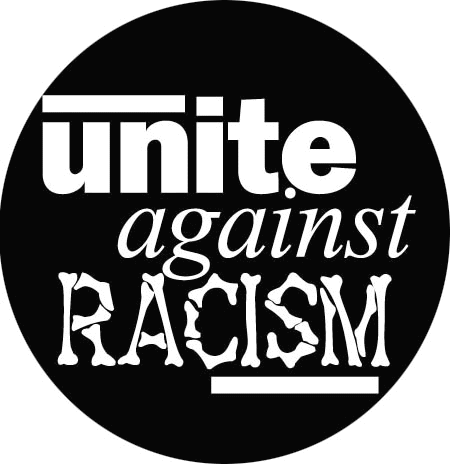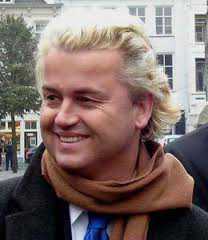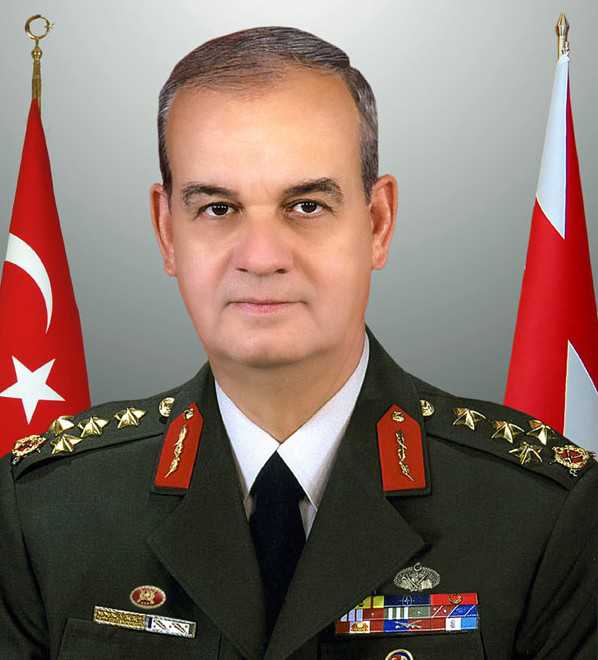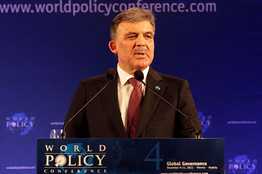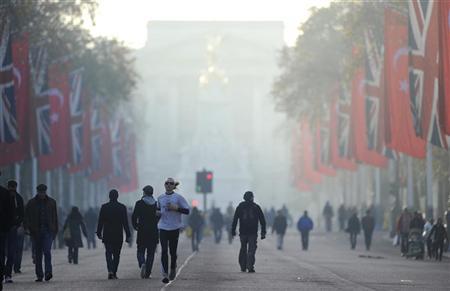Turkish President Abdullah Gul meets Monday with the Tribune’s editorial board. (Heather Charles, Chicago Tribune / May 21, 2012)
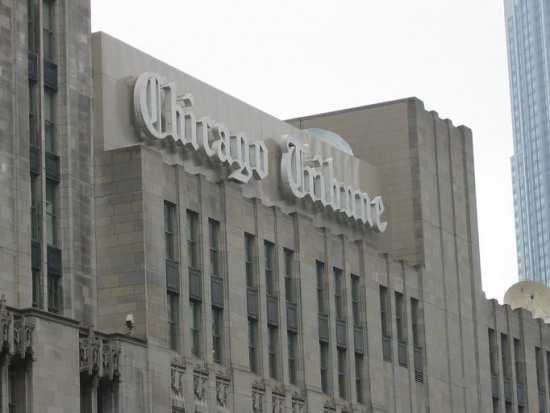
His largely Islamic nation, so often misunderstood, ruled by secular generals for decades, is now in the midst of a democratic revolution, taking the difficult steps of forming a constitution, balancing the rights of minorities and the fears of the old secularists about Islam.
Turkey is critical to stability in the region as old dictatorships fell to the Arab Spring. The bordering nations are all of vital interest to the U.S., namely troubled Iraq and Iran and war-torn Syria.
Turkey also now has a frosty at best relationship with Israel, since in 2010 Israeli commandos boarded a Turkish ship in a flotilla to Gaza, and nine Turks, including one Turkish-American, were killed. Turkey has demanded an apology and Israel has declined.
If you follow NATO news, you know of these issues. But there was one question I wanted to ask President Gul that is often overlooked, though it holds particular interest to the Christian minorities in his country, and to millions of Orthodox Christians around the world:
When will the Turkish government reopen the Greek Orthodox seminary at Halki, closed by the secularists decades ago? And how does the issue of Halki impact the formation of the new Turkish Constitution being written, and rights of minorities?
The Turkish prime minister has promised to reopen the seminary. But it has not yet been reopened.
“Let me start by saying that we respect everyone’s faith and belief and we also believe that everyone should be free to exercise and practice their beliefs,” Gul said through an interpreter. “This is something we believe in, frankly and truly, the government believes in this. But there are some issues, problems, that need to be resolved and we’re taking some steps to resolve them.
“The issue of the seminary has to do with the constitution and the principle of secularism,” he said. “We have to treat all religions equally. And to find a solution to the seminary it was suggested to attach it to the department of theology under the Istanbul University, but this was not a suggestion that was accepted. This is something that we’re looking into.
“People of all faiths should be free to learn their faith and teach it, and I’m sure that with this work that is ongoing with the drawing up of the constitution, this is something that can be resolved,” Gul said.
I mentioned to him that there were once thousands and thousands of Greeks in Istanbul, that Greeks and Muslims had lived there together for centuries, but that in the last 100 years or so, under the secular Turkish state, that number has dwindled.
Only a few years ago, some 5,000 Greek Orthodox Christians were living in the city that is the seat of the Ecumenical Patriarch Bartholomew I, spiritual leader of the world’s Orthodox. And now, perhaps 1,200 remain.
Does Gul see the number increasing or decreasing with the new promises of tolerance and acceptance of minority rights?
“We are aware of it,” Gul said. “We are in constant contact with our Orthodox citizens, with the patriarch and the leaders of the religious communities, and they are very pleased with the steps we’re taking.”
Before the editorial board meeting, I spoke to the chancellor of the Greek Orthodox Metropolis of Chicago, Bishop Demetrios of Mokissos, who told me there was a meeting scheduled at his office on Tuesday with Turkish Foreign Minister Ahmet Davutoglu.
“We have great hopes that Halki will be reopened, and expectations, as this was promised,” Bishop Demetrios said. “There have been great changes in Turkey, and reason for optimism.
“But for Roman Catholics reading this, think if a government wouldn’t allow you to open religious schools. The Greek Orthodox seminary at Halki is the place where the Orthodox hierarchy has been educated. Patriarch Bartholomew himself studied there. We expect to have a productive meeting on Tuesday,” Demetrios said.
The Turkish government has been reaching out to Christian, Jewish and other religious minorities in the country for years. But secularists are pushing back, worried that Islam will dominate the politics of Turkey in the future.
In his session with the Tribune’s editorial board, Gul was sensitive to this, but also noted that Turkey now serves as an inspiration to other nations emerging from the Arab Spring.
“When people write about Turkey they mention Islamic government in Turkey, whereas the Justice and Development Party, the AKP, has never identified itself as a religious party,” said the Turkish president, who helped found the party. “The fact that this party, which is a conservative party, has focused on democracy, has raised democratic standards, has tried to integrate Turkey with the rest of the world, and has engaged in deep-rooted reform in Turkey, these are all sources of inspiration for these countries.
“When we were in the opposition, there were some who would describe us as radical and say that if we ever came into government we would take Turkey away from the West,” Gul said. “But I think these emerging countries get responsibility, they will act rationally.”
So far, with chaos on all her borders, Turkey has been acting rationally and well.
“Opening Halki would be seen so positively,” said Bishop Demetrios. “To talk of religious freedom, and then to demonstrate it to the world. That would tell the world that Turkey has truly changed.”

